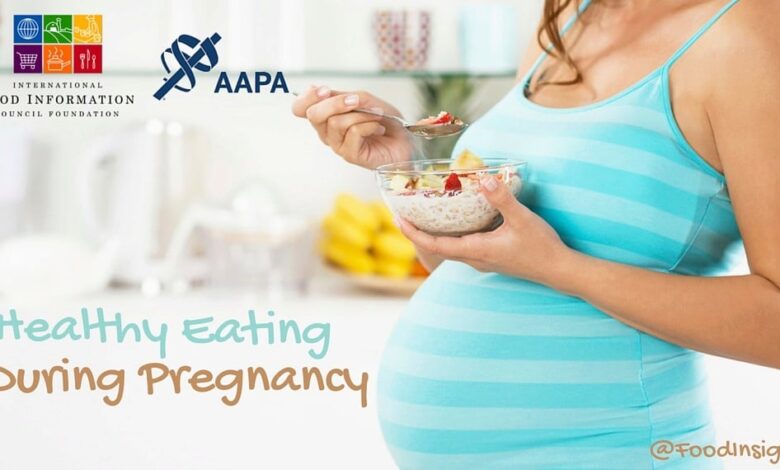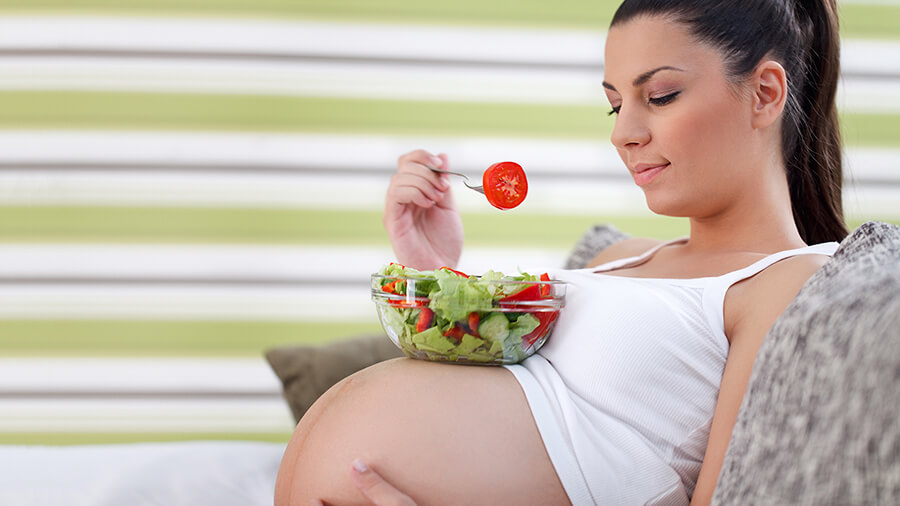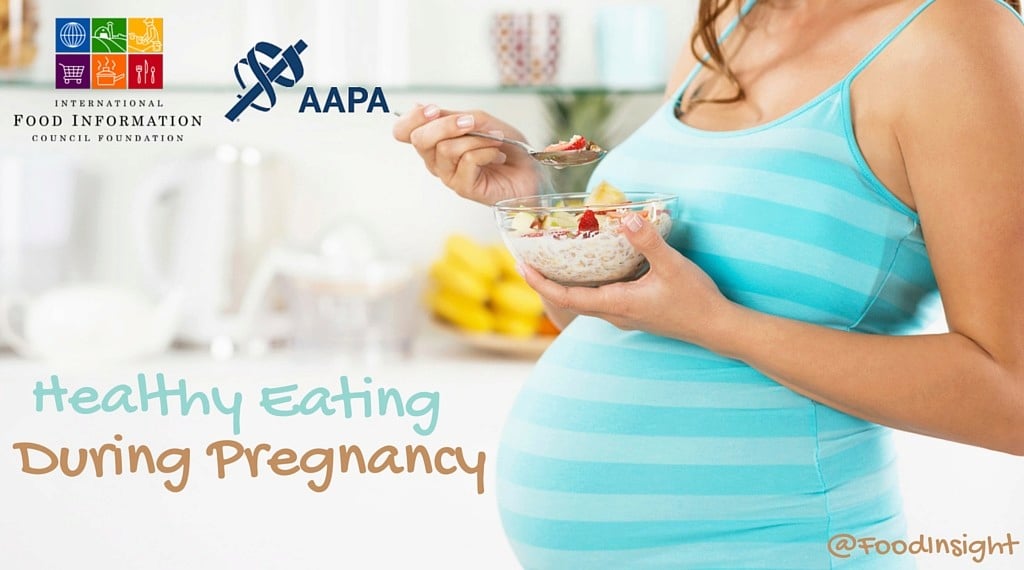
Eating healthy while pregnant can reduce risk of low birth weight. A healthy pregnancy hinges on proper nutrition. This crucial period demands specific nutrients to support both the mother’s and baby’s development. A balanced diet plays a vital role in ensuring a healthy weight gain for the baby and avoiding potential complications, like low birth weight. Understanding the nutritional needs during pregnancy is key to making informed choices that impact your baby’s health.
Prenatal nutrition is not just about eating more; it’s about choosing the right foods. A diet rich in essential nutrients like protein, iron, and folic acid is critical for fetal growth and development. We’ll explore the connection between maternal nutrition and infant birth weight, highlighting the importance of specific nutrients and providing practical dietary strategies for a healthy pregnancy.
This includes examining common dietary challenges, offering practical tips, and emphasizing the importance of professional guidance.
Importance of Prenatal Nutrition
Nourishing your body during pregnancy isn’t just about feeling good; it’s about providing your growing baby with the essential building blocks for a healthy start in life. Proper prenatal nutrition plays a crucial role in supporting both maternal and fetal well-being, impacting everything from the development of organs to the overall health of the mother and child. This period requires careful attention to dietary choices, as the nutritional needs of the mother increase significantly to support the developing fetus.The body undergoes significant physiological changes during pregnancy.
The expanding uterus, increased blood volume, and the development of the placenta all require substantial energy and nutrients. These changes impact the mother’s metabolism and nutrient absorption, demanding adjustments in her dietary intake to meet the amplified needs of both herself and her growing baby. Understanding these changes and the specific nutrient needs during each trimester is paramount to ensure optimal health for both mother and child.
Critical Role of Nutrition During Pregnancy
Nutrition during pregnancy is paramount for fetal development. The nutrients a pregnant woman consumes directly influence the growth and development of the fetus, impacting everything from brain development to organ formation. Adequate intake of essential nutrients like protein, iron, calcium, and folic acid is vital for the healthy progression of pregnancy and prevents potential complications.
Physiological Changes Affecting Nutrient Needs
Pregnancy involves significant physiological changes that affect nutrient needs. Increased blood volume and metabolic rate require a greater intake of certain nutrients. The growing placenta and the development of fetal tissues demand a higher level of nutrients, like protein and vitamins, to meet the needs of both mother and baby. These changes highlight the importance of adjusting dietary habits to support the amplified nutrient demands during pregnancy.
Connection Between Maternal Nutrition and Fetal Development
The link between maternal nutrition and fetal development is undeniable. The fetus relies entirely on the mother’s nutritional intake for growth and development. A diet deficient in essential nutrients can lead to stunted growth, developmental delays, and an increased risk of various health problems in the baby. Conversely, a balanced diet rich in essential nutrients provides the necessary building blocks for healthy fetal development and a stronger immune system.
Potential Consequences of Inadequate Nutrition During Pregnancy
Inadequate nutrition during pregnancy can have significant consequences for both the mother and the child. These consequences can range from premature birth and low birth weight to developmental delays and long-term health issues. In some cases, severe nutritional deficiencies can lead to birth defects and increase the risk of complications during delivery. Understanding the potential consequences underscores the importance of a balanced and nutritious diet throughout pregnancy.
Comparison of Nutritional Needs
| Nutrient | Non-Pregnant Woman | Pregnant Woman | Explanation |
|---|---|---|---|
| Protein | Recommended Daily Allowance (RDA) varies | Increased RDA | Protein is crucial for tissue growth and repair, especially during pregnancy. |
| Iron | RDA varies | Increased RDA significantly | Iron is essential for red blood cell production, crucial for both mother and developing fetus. |
| Calcium | RDA varies | Increased RDA | Calcium is essential for bone development in the fetus and maintaining bone health in the mother. |
| Folate | RDA varies | Increased RDA significantly | Folate is critical for preventing neural tube defects in the developing fetus. |
| Vitamins (e.g., B Vitamins, Vitamin D) | RDA varies | Increased RDA | Essential for various bodily functions and growth. |
Specific requirements vary based on individual needs and factors like pre-existing health conditions. Consult with a healthcare professional for personalized dietary recommendations during pregnancy. It’s important to note that these are general guidelines; individual needs may vary. A healthcare professional can provide tailored advice.
Impact of Healthy Eating on Low Birth Weight

Nourishing your body during pregnancy is crucial not only for your well-being but also for the healthy development of your baby. A balanced diet rich in essential nutrients plays a vital role in preventing low birth weight, a significant concern that can impact a child’s long-term health. This crucial connection between maternal nutrition and infant health highlights the importance of prioritizing healthy eating habits throughout pregnancy.A well-nourished mother provides the building blocks for a healthy baby, ensuring optimal growth and development.
A balanced intake of essential nutrients, like protein, iron, and folic acid, directly influences fetal growth and development. By understanding the relationship between diet and birth weight, expectant mothers can make informed choices that contribute to a healthier pregnancy outcome for both themselves and their babies.
Correlation Between Healthy Eating and Reduced Risk of Low Birth Weight
Healthy eating habits during pregnancy are strongly correlated with a reduced risk of low birth weight. Studies have consistently demonstrated a positive association between maternal dietary intake and infant birth weight. A diet rich in essential nutrients supports fetal growth and development, leading to healthier babies. Conversely, inadequate nutrition can hinder fetal development, increasing the likelihood of low birth weight.
Evidence-Based Information on Maternal Diet and Infant Birth Weight
Extensive research supports the link between maternal diet and infant birth weight. Numerous studies have shown that women who consume a balanced diet, rich in essential nutrients, are more likely to have babies with healthy birth weights. These studies demonstrate a clear correlation between nutritional intake and fetal growth. For instance, studies in diverse populations have shown a consistent trend: improved maternal nutrition is associated with increased birth weight in infants.
This demonstrates the significant impact of diet on the overall health and development of the child.
Potential Effects of Different Dietary Patterns on Birth Weight Outcomes
Different dietary patterns can significantly impact birth weight outcomes. A diet rich in fruits, vegetables, whole grains, and lean proteins generally supports healthy fetal growth. Conversely, diets high in processed foods, sugary drinks, and unhealthy fats may negatively influence birth weight. The impact of a specific dietary pattern on birth weight is often dependent on other factors, such as pre-existing health conditions and overall lifestyle choices.
Impact of Specific Nutrients on Fetal Growth
Specific nutrients play critical roles in fetal growth and development. Protein is essential for building tissues and organs, while iron supports red blood cell production, crucial for oxygen transport to the developing fetus. Folate, a B vitamin, is vital for cell division and growth, particularly during the first trimester. Adequate intake of these nutrients is crucial for healthy fetal development and a normal birth weight.
Dietary Recommendations for Preventing Low Birth Weight
| Nutrient | Recommended Intake (Approximate) | Food Sources |
|---|---|---|
| Protein | Increased intake compared to pre-pregnancy | Lean meats, poultry, fish, beans, lentils, tofu |
| Iron | Increased intake compared to pre-pregnancy | Red meat, leafy green vegetables, iron-fortified cereals |
| Folate | Increased intake compared to pre-pregnancy | Leafy green vegetables, fortified cereals, citrus fruits |
| Calcium | Increased intake compared to pre-pregnancy | Dairy products, leafy green vegetables, fortified foods |
| Vitamin D | Increased intake compared to pre-pregnancy | Fatty fish, fortified foods, sunlight exposure |
| Fiber | Increased intake compared to pre-pregnancy | Fruits, vegetables, whole grains |
These recommendations provide a general guideline. Consult with a healthcare professional for personalized dietary advice tailored to your individual needs and health status. It’s important to note that these recommendations are approximate and may vary depending on individual circumstances.
Key Nutrients for Preventing Low Birth Weight
A healthy pregnancy hinges on proper nutrition, and a significant aspect of this is ensuring your body provides the necessary nutrients for your developing baby. A critical part of this process is understanding the importance of key nutrients in preventing low birth weight. Adequate intake of these essential nutrients supports fetal growth and development, ultimately leading to a healthier outcome for both mother and child.
Eating healthy during pregnancy is crucial for a healthy baby, and it can significantly reduce the risk of low birth weight. Thinking about your holiday plans and visiting another state for the holidays? Before you pack your bags, consider things like planning to visit another state for the holidays what to consider before you go – checking the local food scene and making sure you have access to nutritious options is a must for your growing family.
Ultimately, healthy eating habits are key to ensuring a healthy pregnancy and a healthy baby.
Essential Nutrients for Fetal Development
The development of a healthy fetus relies on a balanced intake of various nutrients. Specific nutrients play crucial roles in different stages of fetal growth, contributing to organ development, brain function, and overall well-being. These nutrients are vital for preventing complications like low birth weight.
- Protein: Protein is essential for building and repairing tissues, including those of the growing fetus. It’s crucial for muscle development, organ formation, and cell growth. Adequate protein intake is linked to better fetal growth and a reduced risk of low birth weight.
- Iron: Iron is vital for red blood cell production, ensuring adequate oxygen delivery to the growing fetus. Iron deficiency can lead to anemia in the mother, which in turn can impact fetal oxygenation and potentially result in low birth weight. Iron is also essential for the development of the fetal brain and nervous system.
- Folate: Folate, a B vitamin, is critical for cell division and growth, particularly during the early stages of pregnancy when the neural tube is developing. Adequate folate intake helps prevent neural tube defects and supports overall fetal development. It’s important to note that insufficient folate intake is strongly associated with a higher risk of low birth weight.
- Calcium: Calcium plays a critical role in fetal bone development. Sufficient calcium intake is necessary for healthy bone formation in the fetus and helps prevent potential complications. A lack of calcium could impact bone development in the growing fetus.
- Iodine: Iodine is crucial for thyroid hormone production, which is essential for brain development and growth in the fetus. Iodine deficiency during pregnancy can negatively affect fetal brain development, potentially leading to intellectual impairment. It is essential for cognitive function and preventing complications associated with low birth weight.
Recommended Daily Intake and Food Sources
Understanding the recommended daily intake and food sources for these nutrients is essential for achieving a balanced diet during pregnancy. This knowledge enables pregnant women to make informed choices to support their baby’s healthy development.
Eating healthy during pregnancy significantly lowers the risk of low birth weight, which is a crucial factor in a baby’s early development. However, sometimes, factors like antibodies producing faulty results antibodies producing faulty results can complicate matters. Fortunately, a balanced diet rich in essential nutrients can still significantly mitigate these potential issues, ensuring the best possible outcome for both mom and baby.
- Protein: The recommended daily intake of protein during pregnancy varies based on individual needs. Consulting a healthcare professional is crucial to determine the appropriate amount for each person. Excellent protein sources include lean meats, poultry, fish, beans, lentils, eggs, and dairy products.
- Iron: The recommended daily intake of iron for pregnant women is significantly higher than for non-pregnant women. Iron-rich foods include red meat, spinach, lentils, beans, fortified cereals, and dried fruits. Taking iron supplements may be necessary under the guidance of a doctor.
- Folate: The recommended daily intake of folate during pregnancy is increased to support the rapid cell division and growth of the developing fetus. Excellent sources include leafy green vegetables, citrus fruits, legumes, and fortified grains. Prenatal vitamins often contain sufficient folate.
- Calcium: The recommended daily intake of calcium during pregnancy supports the development of the fetal skeleton. Dairy products, leafy green vegetables, and fortified foods are good sources of calcium. It’s crucial to consume calcium-rich foods regularly.
- Iodine: The recommended daily intake of iodine is crucial for proper thyroid function. Iodine-rich foods include iodized salt, seafood, dairy products, and eggs. The adequate intake of iodine is crucial for the healthy development of the fetus.
Nutrient Deficiencies and Potential Impact
A deficiency in any of these essential nutrients can have a significant impact on fetal development and potentially contribute to low birth weight.
| Nutrient Deficiency | Potential Impact on Fetal Development |
|---|---|
| Iron Deficiency | Reduced fetal hemoglobin levels, potentially leading to anemia, decreased oxygen supply to the fetus, and increased risk of premature birth and low birth weight. |
| Folate Deficiency | Increased risk of neural tube defects (e.g., spina bifida), potentially causing severe neurological impairments in the child. It can also result in low birth weight. |
| Calcium Deficiency | Impaired bone development in the fetus, potentially leading to skeletal abnormalities and increased risk of fractures later in life. |
| Iodine Deficiency | Impaired brain development and intellectual function in the child, leading to potentially irreversible cognitive impairments. Iodine deficiency during pregnancy can increase the risk of low birth weight. |
| Protein Deficiency | Slowed fetal growth, decreased muscle development, and potentially impaired organ development. A protein deficiency in pregnant women is strongly associated with low birth weight. |
Dietary Strategies for Healthy Pregnancy
Nourishing your body during pregnancy is crucial for both your well-being and your baby’s development. A balanced diet rich in essential nutrients supports healthy growth and reduces the risk of complications, including low birth weight. This section explores various dietary strategies to support healthy eating habits throughout your pregnancy journey.
Balanced Dietary Approach, Eating healthy while pregnant can reduce risk of low birth weight
A balanced diet forms the cornerstone of a healthy pregnancy. It encompasses a wide variety of foods, ensuring your body receives the necessary vitamins, minerals, and macronutrients. Fruits, vegetables, whole grains, and lean proteins are fundamental components of this approach. Fruits and vegetables provide essential vitamins, minerals, and fiber, promoting digestive health and overall well-being. Whole grains offer complex carbohydrates, providing sustained energy.
Lean proteins, such as poultry, fish, beans, and lentils, are crucial for tissue growth and repair. A balanced diet is not about deprivation, but about mindful choices that prioritize nutritional needs.
Meal Planning Strategies for Pregnant Women
Several meal planning strategies can help you structure your dietary intake effectively during pregnancy. One approach involves planning meals in advance, creating a weekly menu to ensure variety and adherence to dietary needs. Another strategy involves utilizing meal prep techniques to streamline the process and minimize time spent on cooking. This can be especially helpful for busy schedules.
Moreover, incorporating a variety of healthy snacks into your meal plan can help prevent hunger pangs and maintain energy levels throughout the day.
Managing Dietary Concerns
Pregnancy can bring about various dietary concerns, including nausea, cravings, and aversions. Nausea, often experienced during the first trimester, can significantly impact eating habits. Small, frequent meals, avoiding strong smells, and consuming bland foods can help manage nausea. Cravings, while sometimes perplexing, are often a reflection of your body’s need for specific nutrients. Instead of giving in to cravings for unhealthy foods, it is essential to find healthy alternatives to satisfy those cravings.
Food aversions, similar to cravings, can also occur, and it’s important to respect these preferences while ensuring you’re still getting the necessary nutrients. Consult with your healthcare provider for personalized guidance and recommendations.
Sample Meal Plan for Preventing Low Birth Weight
This meal plan provides a framework for a pregnant woman aiming to prevent low birth weight. It emphasizes balanced portions and nutrient-dense foods.
| Meal | Description |
|---|---|
| Breakfast | Oatmeal with berries and nuts, or a whole-wheat toast with avocado and a hard-boiled egg. |
| Lunch | A salad with grilled chicken or fish, quinoa, and a light vinaigrette dressing. |
| Dinner | Lentil soup with whole-wheat bread, or baked salmon with roasted vegetables and brown rice. |
| Snacks | Fruits (apples, bananas, oranges), yogurt, or a handful of almonds. |
Note: This is a sample meal plan, and individual needs may vary. Consult with your doctor or a registered dietitian for personalized dietary recommendations.
Addressing Dietary Challenges During Pregnancy
Navigating pregnancy often brings unique dietary challenges. These can range from simple adjustments to more complex issues like food aversions or sensitivities. Understanding these hurdles and finding effective solutions is crucial for both the mother’s and the baby’s well-being. A well-balanced diet during pregnancy is essential for optimal fetal development and a healthy pregnancy outcome.Addressing these challenges proactively can significantly improve the overall health and well-being of both mother and child.
Strategies for overcoming common dietary hurdles, coupled with a focus on nutrient-rich foods, can help ensure a smooth and successful pregnancy journey.
Common Dietary Challenges in Pregnancy
Many pregnant women experience a range of dietary challenges, some expected and others less common. These difficulties can stem from physiological changes, emotional factors, or lifestyle adjustments. Recognizing these issues is the first step in developing effective solutions.
- Morning sickness and food aversions are common. Morning sickness, characterized by nausea and vomiting, often affects the first trimester. These symptoms can lead to a reluctance to consume certain foods, making it difficult to maintain a balanced diet. This is often temporary and resolves as the pregnancy progresses.
- Food cravings can also significantly impact dietary choices. These cravings, often for unusual or specific foods, can be intense and difficult to resist. It’s important to acknowledge and understand these cravings while ensuring they don’t compromise the overall nutritional intake.
- Increased appetite and changes in taste perception are normal physiological changes. As the body prepares for the growing needs of the developing fetus, hunger pangs may increase. These shifts in taste can make some foods unappealing while others become intensely desired.
- Food sensitivities and allergies can present a challenge. Pregnant women may experience new or heightened sensitivities to specific foods, requiring careful attention to avoid potential adverse reactions. These can manifest as digestive discomfort or more severe allergic responses.
- Budget constraints can affect food choices. The increased cost of groceries, coupled with the need for specific nutrient-rich foods, can present a significant challenge for some expecting mothers.
Overcoming Dietary Challenges
Successfully navigating dietary challenges during pregnancy involves a combination of understanding the issue, seeking support, and making practical adjustments.
- Managing morning sickness and food aversions can be achieved by consuming small, frequent meals, focusing on bland foods, and avoiding triggers. Ginger, acupressure, and certain medications can also provide relief.
- Addressing food cravings requires a balanced approach. If a craving is for a nutrient-deficient food, exploring alternative sources of those nutrients is crucial. For instance, craving salty snacks can be met with nutrient-rich options like olives or roasted chickpeas.
- Adapting to increased appetite and changes in taste involves mindful eating and gradual adjustments. Instead of large meals, consuming several smaller portions throughout the day can help manage hunger pangs. Gradually incorporating new foods or recipes can help accommodate changes in taste preferences.
- Managing food sensitivities and allergies necessitates a thorough understanding of the triggers. Keeping a food diary can help identify potential allergens or sensitivities. Consulting with a healthcare professional for personalized advice is crucial. Eliminating suspected allergens from the diet and carefully introducing new foods under supervision can help avoid adverse reactions.
- Addressing budget constraints involves strategic food choices and meal planning. Focusing on affordable, nutrient-dense foods, utilizing budget-friendly recipes, and exploring local farmers markets can help minimize financial strain.
Importance of Professional Guidance
Seeking professional guidance is vital for personalized dietary advice during pregnancy. Healthcare professionals can offer tailored recommendations based on individual needs and circumstances.
- Consultations with a registered dietitian or nutritionist provide valuable insights into personalized dietary needs. They can create a meal plan that accounts for any specific dietary requirements, allergies, or sensitivities. They can also help navigate the challenges of food cravings and aversions, providing specific strategies for managing them.
- Obstetricians or midwives play a key role in monitoring overall health and well-being. They can advise on the specific nutritional needs of the pregnant woman and ensure that any dietary adjustments are safe and effective.
Illustrative Examples of Healthy Meals
Nourishing your body during pregnancy is crucial for both your well-being and your baby’s development. Choosing the right foods and understanding portion control can significantly impact your pregnancy journey. This section provides a variety of healthy meal options, detailed recipes, and valuable insights into mindful eating.
Healthy Meal Examples for Pregnant Women
A balanced diet rich in essential nutrients is paramount during pregnancy. The following examples demonstrate how to incorporate diverse food groups into delicious and nutritious meals.
Eating healthy during pregnancy is crucial for a healthy baby, and a key part of that is reducing the risk of low birth weight. Maintaining a balanced diet packed with nutrients is essential, but it’s also important to consider other factors like staying active. Finding ways to stay active as you get older, like those outlined in this helpful guide how to stay active as you get older , can improve overall health and contribute to a healthier pregnancy outcome, further reducing the risk of low birth weight.
Ultimately, prioritizing a healthy lifestyle, including both a nutritious diet and physical activity, is vital for a positive pregnancy experience.
| Meal | Nutritional Benefits | Recipe | Portion Control |
|---|---|---|---|
| Breakfast: Berry Oatmeal with Chia Seeds | Excellent source of fiber, antioxidants, and protein. Chia seeds provide omega-3 fatty acids and fiber, promoting healthy digestion. | Cook rolled oats according to package directions. Top with mixed berries (strawberries, blueberries, raspberries), a tablespoon of chia seeds, and a sprinkle of cinnamon. Add a dollop of plain Greek yogurt for extra protein. | A ½ cup serving of cooked oatmeal, ½ cup mixed berries, 1 tablespoon chia seeds, and a ¼ cup of Greek yogurt. |
| Lunch: Quinoa Salad with Chickpeas and Veggies | Provides complete protein, fiber, and essential vitamins and minerals. Quinoa is a great source of protein and fiber, while chickpeas add extra protein and fiber. | Cook quinoa according to package directions. Combine cooked quinoa with chickpeas, chopped cucumber, bell peppers, tomatoes, and red onion. Dress with a light vinaigrette made from olive oil, lemon juice, and herbs (parsley, cilantro). | A ½ cup serving of cooked quinoa, ½ cup cooked chickpeas, and 1 cup of mixed vegetables. |
| Dinner: Baked Salmon with Roasted Asparagus and Sweet Potatoes | Provides omega-3 fatty acids, protein, and vitamins. Salmon is an excellent source of omega-3 fatty acids, essential for brain development. Sweet potatoes and asparagus are packed with vitamins and fiber. | Preheat oven to 400°F (200°C). Place salmon fillets on a baking sheet lined with parchment paper. Roast asparagus spears and sweet potato cubes alongside the salmon. Season with herbs (dill, parsley), salt, and pepper. | A 4-ounce serving of salmon, 1 cup of roasted asparagus, and ½ cup of roasted sweet potato. |
| Snack: Greek Yogurt with Fruit and Nuts | Provides protein, calcium, and healthy fats. Greek yogurt is a good source of protein and calcium, essential for bone health. Fruits and nuts provide vitamins, minerals, and healthy fats. | Combine a ½ cup of plain Greek yogurt with ½ cup of sliced fruit (apple, banana, or berries) and a handful of almonds or walnuts. | A ½ cup serving of Greek yogurt, ½ cup of fruit, and a ¼ cup of nuts. |
Mindful Eating and Portion Control
“Consciously paying attention to your hunger and fullness cues is key to maintaining a healthy pregnancy.”
It’s important to listen to your body’s hunger and fullness cues. Don’t feel pressured to eat more than you need. Portion control helps you avoid overeating, which can lead to weight gain that is not necessarily beneficial during pregnancy. By being mindful of your food choices and portion sizes, you can better support your overall health and your baby’s development.
Remember to consult with your doctor or a registered dietitian for personalized dietary recommendations.
The Role of Physical Activity and Hydration

A healthy pregnancy involves more than just a balanced diet. Regular physical activity and proper hydration are crucial for both the mother’s well-being and the healthy development of the fetus. These elements contribute significantly to a smoother pregnancy journey and a positive outcome.Maintaining a healthy weight and reducing the risk of gestational diabetes are directly linked to physical activity.
Adequate hydration supports the growth and development of the baby, and helps prevent various pregnancy-related complications. By incorporating both physical activity and hydration into your routine, you are proactively contributing to a healthier pregnancy experience.
Importance of Physical Activity During Pregnancy
Physical activity is essential for maintaining physical and mental well-being during pregnancy. It helps manage weight gain, reduces the risk of complications, and promotes a stronger body to support the growing baby. Regular exercise also plays a vital role in reducing stress and improving mood, which is important for a positive pregnancy experience. It’s important to note that some exercises are not suitable during pregnancy.
Consult your doctor to determine the best exercises for your individual needs and physical condition.
Types of Exercises Suitable for Pregnant Women
Prenatal exercise programs should focus on low-impact activities that are safe and effective for both the mother and the baby. Walking, swimming, prenatal yoga, and specialized exercise classes designed for pregnant women are excellent choices. These activities help strengthen muscles, improve cardiovascular health, and promote flexibility, while reducing the risk of complications.
- Walking: A simple yet effective exercise, walking helps maintain cardiovascular health and strengthens leg muscles. It’s a great way to stay active and improve overall well-being without putting undue stress on the body.
- Swimming: The buoyancy of water supports the weight of the pregnant body, reducing stress on joints and ligaments. Swimming provides a low-impact cardiovascular workout and promotes relaxation.
- Prenatal Yoga: Yoga poses are designed to improve flexibility, balance, and strength while focusing on relaxation techniques. Prenatal yoga classes are specifically tailored to accommodate the changes in the body during pregnancy.
- Specialized Exercise Classes: Many gyms and fitness centers offer exercise classes specifically designed for pregnant women. These classes are led by qualified instructors who understand the unique needs of expectant mothers.
Importance of Hydration During Pregnancy
Adequate hydration is critical for a healthy pregnancy. The increased blood volume during pregnancy requires a significant amount of water to support the growing fetus and the mother’s circulatory system. Proper hydration helps prevent complications like dehydration, fatigue, and headaches. Staying well-hydrated throughout pregnancy is vital for the overall health of both the mother and the developing baby.
Recommended Daily Fluid Intake During Pregnancy
Maintaining hydration during pregnancy is crucial. The recommended daily fluid intake is approximately 8-10 glasses of water. However, individual needs may vary depending on activity levels, weather conditions, and overall health.
Benefits of Physical Activity and Hydration During Pregnancy
| Aspect | Benefits |
|---|---|
| Physical Activity |
|
| Hydration |
|
Practical Tips for Healthy Eating Habits
Nourishing your body during pregnancy is crucial for your well-being and your baby’s development. Healthy eating habits, coupled with mindful choices, can significantly contribute to a healthy pregnancy outcome. This involves understanding food labels, portion control, and mindful consumption, all of which are key components of a balanced diet. Making informed choices and avoiding harmful substances are also essential for a positive pregnancy experience.Developing and maintaining healthy eating habits during pregnancy requires a multifaceted approach.
It’s not about strict restrictions, but about making conscious choices that support both your needs and your baby’s. Understanding the nutritional needs of both you and your growing baby is paramount. This involves being aware of the foods you consume and making informed decisions about what to eat and drink.
Reading Food Labels
Understanding food labels is essential for making informed choices. Food labels provide crucial information about the nutritional content of a product, including calories, fat, sugar, and sodium content. This information allows you to compare different products and make healthier choices. Pay close attention to serving sizes, as they can significantly impact the overall nutritional value of the food.
Comparing similar products allows you to select the option with the lowest amounts of harmful ingredients.
Mindful Eating and Portion Control
Mindful eating involves paying attention to your body’s hunger and fullness cues. This practice encourages you to eat slowly, savor your food, and stop eating when you feel satisfied, not overly full. Portion control is equally important. Overeating can lead to unnecessary weight gain, which can have implications for both you and your baby. Using smaller plates and bowls can help in controlling portion sizes, and being aware of appropriate serving sizes for different foods can also help with this.
Simple Swaps for Healthier Meals
Making simple swaps can significantly improve the nutritional value of your meals without sacrificing taste. For instance, instead of sugary cereals, opt for whole-grain options. Replace white bread with whole-wheat bread. Swap sugary drinks for water or unsweetened beverages. Choose lean protein sources like chicken breast over fatty red meat.
These small changes can accumulate to make a considerable difference in your overall diet.
Avoiding Processed Foods and Sugary Drinks
Processed foods often contain high levels of added sugars, unhealthy fats, and sodium. These ingredients can negatively impact your health and your baby’s development. Likewise, sugary drinks provide empty calories and contribute to weight gain. Limiting processed foods and sugary drinks is crucial for maintaining a healthy pregnancy. Focus on whole, unprocessed foods that provide essential nutrients without harmful additives.
Practical Tips for Healthy Eating Habits
- Track your intake: Maintain a food diary to monitor your daily calorie and nutrient intake. This helps you identify areas for improvement and ensure you’re meeting your nutritional needs.
- Prioritize whole foods: Emphasize whole grains, fruits, vegetables, lean proteins, and healthy fats. These foods provide essential nutrients and fiber.
- Hydration is key: Drink plenty of water throughout the day. Dehydration can lead to various health complications. Consider herbal teas and unsweetened drinks as alternatives to sugary options.
- Choose lean protein sources: Opt for lean meats, poultry, fish, beans, and lentils. These provide protein without excessive saturated fat.
- Snack smart: Include healthy snacks like fruits, vegetables, and nuts in your diet to maintain energy levels and prevent overeating at mealtimes.
Healthcare Professional Recommendations
Navigating the complexities of pregnancy, especially when it comes to nutrition, can feel overwhelming. Seeking guidance from healthcare professionals is crucial for a healthy pregnancy and ensuring optimal outcomes for both you and your baby. Prenatal care provides a supportive environment to address dietary needs and concerns, empowering you to make informed choices.Prenatal care isn’t just about check-ups; it’s a partnership between you and your healthcare provider.
They offer personalized advice tailored to your specific needs and circumstances, taking into account any pre-existing conditions, family history, or lifestyle factors. This personalized approach is essential to maximizing your chances of a healthy pregnancy and delivery.
Importance of Prenatal Care in Supporting Healthy Eating Habits
Prenatal care plays a pivotal role in fostering healthy eating habits during pregnancy. Healthcare providers educate expecting mothers on the importance of various nutrients, the risks of deficiencies, and the benefits of a balanced diet. They also help identify potential dietary challenges and provide strategies for overcoming them. This proactive approach ensures that you receive the necessary support and resources to make informed dietary choices.
Examples of Questions to Ask Healthcare Professionals Regarding Diet and Nutrition
It’s essential to communicate openly with your healthcare provider about your dietary concerns and questions. A proactive approach allows you to address any anxieties or uncertainties head-on. Here are some examples of questions you can ask:
- What are the recommended daily caloric intake and macronutrient ratios for my stage of pregnancy?
- What are the key nutrients I need to focus on during pregnancy, and how can I ensure I’m getting enough of them?
- Are there any specific dietary restrictions or recommendations I should follow due to my existing health conditions?
- How can I manage potential dietary challenges, such as morning sickness or food aversions, during my pregnancy?
- What are the risks associated with deficiencies in specific nutrients during pregnancy, and how can I prevent them?
Significance of Following Healthcare Recommendations for a Healthy Pregnancy
Adhering to the recommendations provided by your healthcare professional is vital for a healthy pregnancy. Your healthcare provider’s advice is grounded in scientific research and tailored to your individual circumstances, aiming to optimize your well-being and that of your baby. Following their guidance minimizes potential risks and promotes a smooth and healthy pregnancy journey. The knowledge and expertise of your healthcare provider are invaluable resources.
Comparison of Prenatal Care Programs and Dietary Guidance
Different prenatal care programs may offer varying levels of support and dietary guidance. A comparative analysis can help you understand the different approaches and choose a program that aligns with your needs.
| Prenatal Care Program | Dietary Guidance Provided |
|---|---|
| Public Health Clinics | Often offer basic dietary recommendations, emphasizing key nutrients and healthy food choices. May have limited resources for personalized advice. |
| Private OB/GYN Practices | Usually offer more personalized dietary counseling, potentially including detailed nutritional plans and addressing individual health concerns. |
| Specialized Prenatal Nutrition Programs | Focus specifically on nutrition during pregnancy, providing comprehensive dietary guidance and potentially addressing specific nutritional needs or dietary restrictions. |
| Community-Based Support Groups | May offer group sessions or support networks for dietary advice, encouraging peer-to-peer learning and shared experiences. |
Last Recap: Eating Healthy While Pregnant Can Reduce Risk Of Low Birth Weight
In conclusion, eating healthy while pregnant can significantly reduce the risk of low birth weight. A balanced diet, rich in essential nutrients, is crucial for supporting both maternal and fetal health throughout pregnancy. By understanding the nutritional needs, implementing practical strategies, and seeking professional guidance, expectant mothers can make informed choices to promote a healthy pregnancy and a healthy baby.
Remember, a healthy pregnancy is a partnership between you, your doctor, and your nutrition. Let’s prioritize healthy eating and a healthy lifestyle!





